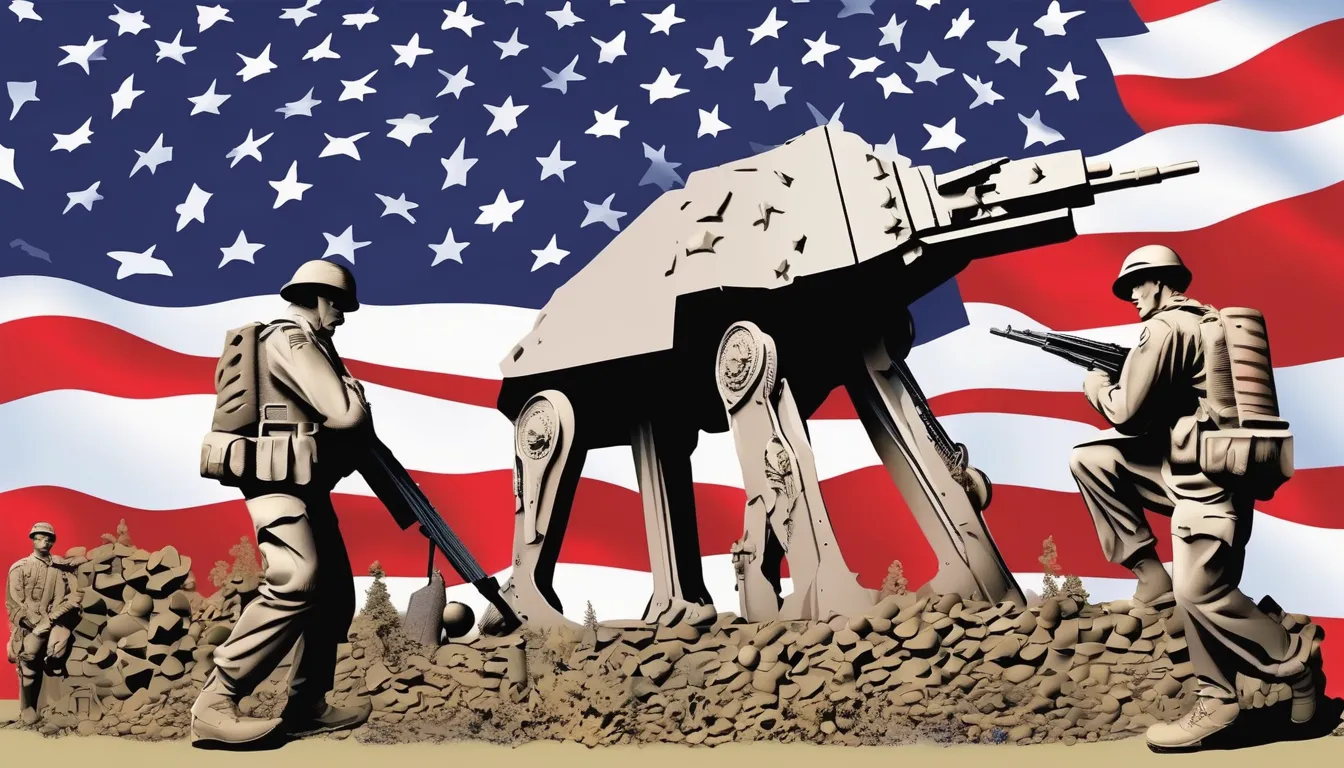
As you consider the complexities of military history, you’re likely to find that personal narratives of war offer a unique perspective on historical events. These accounts, whether in the form of memoirs, diaries, or oral histories, provide insight into the human side of conflict and shed light on the experiences of individual soldiers. But how do these personal stories shape our collective understanding of war and its impact on national identity? What role do they play in shaping cultural memory and influencing how societies perceive and remember conflict? The answer may surprise you, and it’s just the beginning. War and Remembrance USA.
Personal Narratives of War
When you delve into military history, you often come across countless personal narratives of war that frequently leave a lasting impact on readers.
These first-hand accounts offer a unique perspective on historical events, allowing you to experience the emotions, struggles, and triumphs of those who lived through them. By sharing their personal stories, veterans and soldiers provide a glimpse into the human side of war, revealing the complexities and nuances that are often lost in broader historical accounts.
Personal narratives of war can take many forms, including memoirs, diaries, and oral histories.
These accounts not only shed light on the experiences of individual soldiers but also provide insight into the broader cultural and social context of war. They offer a rich source of information for historians, allowing them to reconstruct events and better understand the motivations and actions of those involved.
Cultural Memory and Identity
Cultural memory and identity are intricately linked to the way we perceive and remember war, as it’s through shared experiences and collective narratives that societies process and make sense of conflict. You’re likely to find that a nation’s cultural memory is often tied to its military history, with certain events and battles becoming integral to its identity.
This collective memory is shaped by various factors, including the stories told by veterans, the media’s portrayal of war, and government-sponsored commemorations.
As you delve deeper into the intersection of cultural memory and identity, you’ll notice that it’s often used to justify national interests and policies.
This can lead to a selective representation of history, where certain events are highlighted while others are downplayed or omitted.
You may also observe that cultural memory can be used to create a sense of shared purpose and unity among citizens, fostering a sense of national identity that transcends individual experiences.
Understanding the complex relationship between cultural memory and identity is crucial in grasping how societies engage with their military past.
Commemorating Conflict and Trauma
Numerous commemorations and memorials serve as testaments to the profound impact of conflict and trauma on society.
As you visit these sites, you’re reminded of the enduring legacies of war and the sacrifices made by individuals and communities. These commemorations take many forms, from grand monuments to simple plaques, each serving as a tangible connection to the past.
You may notice that some memorials focus on the experiences of specific groups, such as veterans or civilians, while others honor the collective memory of a nation or community.
As you reflect on these commemorations, consider the ways in which they shape your understanding of conflict and trauma. You may find that certain memorials evoke strong emotions or prompt you to think critically about the complexities of war.
Through these commemorations, you’re invited to engage with the past in a meaningful way, acknowledging the pain and suffering that have come before. By examining these memorials, you’ll gain a deeper appreciation for the intricate relationships between memory, trauma, and military history.
The Role of Oral Histories
The Role of Oral Histories
As you reflect on the memorials and commemorations that honor the experiences of those affected by conflict and trauma, you’re likely to realize that there’s more to the story than what’s etched on a monument or inscribed on a plaque.
Oral histories offer a unique window into the complexities of human experience during times of war and conflict. By listening to the firsthand accounts of veterans, civilians, and others who lived through these events, you gain a deeper understanding of the emotional, psychological, and social impacts of conflict.
Some key aspects of oral histories include:
- *Personal narratives*: Oral histories allow individuals to share their personal stories, providing a glimpse into the diverse experiences of those affected by conflict.
- *Emotional resonance*: These accounts convey the emotional toll of conflict, fostering empathy and understanding in those who listen.
- *Contextualizing events*: Oral histories provide context to historical events, helping to clarify the complexities of war and its aftermath.
- *Preserving legacy*: By recording and sharing these stories, you help preserve the legacy of those who lived through conflict, ensuring their experiences aren’t forgotten.
Shaping National Identity Through Memory
Memory’s transformative power shapes national identity by weaving together collective experiences and values. As you reflect on a nation’s history, you realize that memories of pivotal events and figures play a crucial role in defining its identity. You see how memories of military victories and defeats, of heroes and villains, are passed down through generations, influencing a nation’s values and sense of purpose.
| Aspect of National Identity | Role of Memory | Impact on Society |
|---|---|---|
| Shared Values | Memory reinforces a nation’s core values, such as freedom and democracy | Creates a sense of unity and purpose among citizens |
| Historical Narratives | Memory shapes the narrative of a nation’s history, highlighting key events and figures | Influences how citizens understand their nation’s past and its impact on the present |
| National Pride | Memory fosters national pride by celebrating military victories and heroic deeds | Boosts morale and motivates citizens to work towards a common goal |
| Cultural Heritage | Memory preserves a nation’s cultural heritage, including traditions and customs | Enriches citizens’ understanding of their cultural roots and sense of belonging |
As you consider the intersection of memory and military history, you begin to appreciate the profound impact of memory on shaping national identity.
Conclusion
As you’ve seen, the intersection of memory and military history is complex and multifaceted. Personal narratives of war shape cultural memory and identity, influencing how societies perceive and remember conflict. By commemorating trauma and conflict through oral histories and other forms of storytelling, we’re able to process difficult experiences and work towards healing. Ultimately, it’s through this collective memory that we shape our national identity and inform our understanding of military history.




